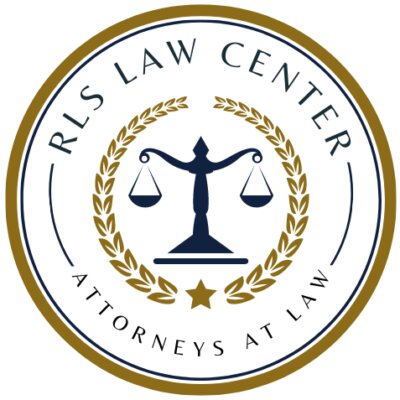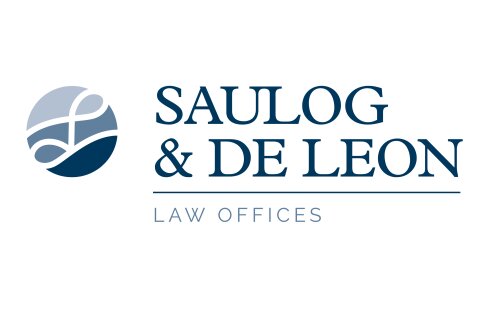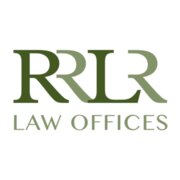Best Toxic Mold Lawyers in Philippines
Share your needs with us, get contacted by law firms.
Free. Takes 2 min.
Or refine your search by selecting a city:
List of the best lawyers in Philippines
About Toxic Mold Law in Philippines
Toxic mold refers to certain types of mold that produce mycotoxins, which can be harmful to human health. In the Philippines, the presence of toxic mold in homes and buildings is a growing concern due to its potential effects on individuals' health. As such, there are legal measures in place to address issues related to toxic mold exposure and contamination.
Why You May Need a Lawyer
You may need a lawyer if you have been exposed to toxic mold in your residence or workplace and believe it has caused health issues. A lawyer with experience in toxic mold cases can help you understand your rights, navigate the legal system, and seek compensation for damages. Additionally, a lawyer can assist you in holding responsible parties accountable for the presence of toxic mold and ensuring that proper remediation measures are taken.
Local Laws Overview
In the Philippines, there are no specific laws that directly address toxic mold. However, existing laws related to environmental protection, health and safety regulations, and landlord-tenant relationships may be applicable in cases involving toxic mold exposure. It is important to consult with a legal professional who is knowledgeable about these laws and their implications for toxic mold cases.
Frequently Asked Questions
Q: What are common health effects of toxic mold exposure?
A: Common health effects of toxic mold exposure include respiratory issues, skin irritation, headaches, and allergic reactions.
Q: How can I determine if there is toxic mold in my home or workplace?
A: Mold testing by a professional is the most reliable way to determine if there is toxic mold present.
Q: Who can be held liable for toxic mold exposure?
A: Liability for toxic mold exposure can vary depending on the circumstances, and may include landlords, property owners, contractors, or other responsible parties.
Q: What should I do if I suspect toxic mold in my property?
A: If you suspect toxic mold in your property, it is important to seek professional testing and remediation services as soon as possible.
Q: Can I sue for damages related to toxic mold exposure?
A: Yes, you may be able to file a lawsuit to seek compensation for damages related to toxic mold exposure, such as medical expenses and property damage.
Q: How can a lawyer help me with a toxic mold case?
A: A lawyer can help you understand your legal options, negotiate with insurance companies, file a lawsuit if necessary, and guide you through the legal process.
Q: Is there a statute of limitations for filing a toxic mold lawsuit?
A: The statute of limitations for toxic mold lawsuits in the Philippines may vary depending on the specific circumstances of the case. It is important to consult with a lawyer to determine the applicable time frame.
Q: What factors are considered when determining liability in a toxic mold case?
A: Factors such as negligence, breach of duty, causation, and damages are typically considered when determining liability in a toxic mold case.
Q: Are landlords required to disclose the presence of toxic mold in rental properties?
A: Landlords have a legal obligation to provide safe and habitable living conditions for tenants, which may include disclosing the presence of toxic mold in rental properties.
Q: How can I prevent toxic mold growth in my home or workplace?
A: To prevent toxic mold growth, it is important to maintain proper ventilation, control moisture levels, and address any water leaks or damage promptly.
Additional Resources
For more information on toxic mold and legal issues in the Philippines, you may consider contacting the Environmental Management Bureau, Department of Health, or consulting with a local legal aid organization.
Next Steps
If you believe you have been exposed to toxic mold and are considering legal action, it is important to consult with a lawyer who specializes in toxic mold cases. A legal professional can assess your situation, advise you on your rights, and help you navigate the legal process to seek justice and compensation for any damages incurred.
Lawzana helps you find the best lawyers and law firms in Philippines through a curated and pre-screened list of qualified legal professionals. Our platform offers rankings and detailed profiles of attorneys and law firms, allowing you to compare based on practice areas, including Toxic Mold, experience, and client feedback.
Each profile includes a description of the firm's areas of practice, client reviews, team members and partners, year of establishment, spoken languages, office locations, contact information, social media presence, and any published articles or resources. Most firms on our platform speak English and are experienced in both local and international legal matters.
Get a quote from top-rated law firms in Philippines — quickly, securely, and without unnecessary hassle.
Disclaimer:
The information provided on this page is for general informational purposes only and does not constitute legal advice. While we strive to ensure the accuracy and relevance of the content, legal information may change over time, and interpretations of the law can vary. You should always consult with a qualified legal professional for advice specific to your situation.
We disclaim all liability for actions taken or not taken based on the content of this page. If you believe any information is incorrect or outdated, please contact us, and we will review and update it where appropriate.
Browse toxic mold law firms by city in Philippines
Refine your search by selecting a city.

















